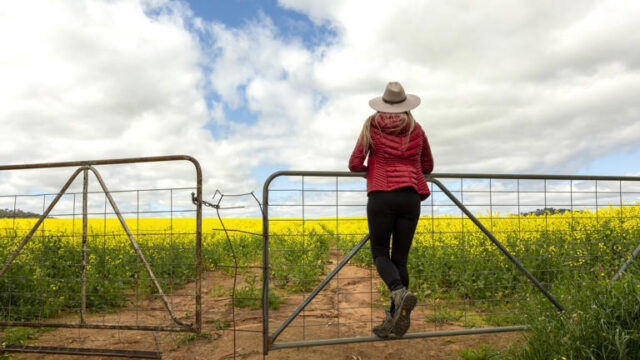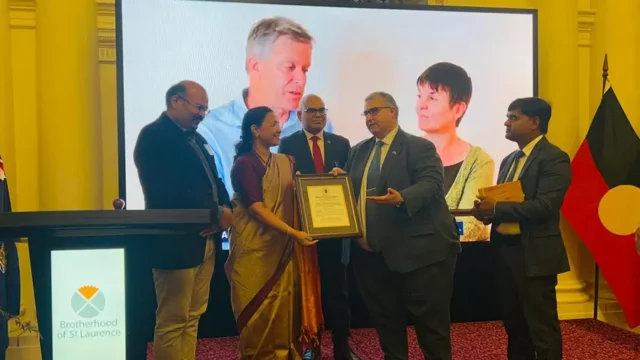Thiruvananthapuram: Kerala’s Health Minister Veena George was formally honoured at
the Parliament of Victoria, Australia, during an ocial session of the Upper House. The
minister was welcomed by Upper House President Shaun Leane and presented with a
special award by Government Chief Whip Lee Tarlamis. The event marked a rare instance
of a sub-national Indian minister being invited as a special guest to a parliamentary
session abroad.
The recognition comes within a larger framework of emerging cooperation between Kerala
and the Australian state of Victoria, particularly in the areas of public health systems,
policy exchange, and technical collaboration. During her visit, Minister Veena held
discussions with Victorian Premier Jacinta Allan, Deputy Premier Ben Carroll, Health
Minister Mary-Anne Thomas, and other ocials, focusing on knowledge exchange and
partnership in healthcare delivery and governance
an eective network of primary health centres (PHCs), community health workers, and
district hospitals. These institutions are not standalone entities but function in
coordination with panchayats, anganwadis, and public education systems, reecting an
integrated approach to welfare.
Historically, land reforms, high female literacy, and investments in education and public
provisioning created the social foundations for this health infrastructure. The People’s
Plan Campaign of the late 1990s, which deepened decentralisation and participatory
governance, further enabled local-level responses to health and sanitation issues. The role
of the public distribution system in ensuring food security, alongside housing and
sanitation initiatives, has also had long-term eects on public health.
In the past decade, Kerala has continued to build on this legacy while responding to new
public health challenges. Under Veena George’s tenure, the Health Department has
prioritised expansion in several areas: mental health infrastructure, trauma care, early
intervention for children with disabilities and rare diseases, digitisation of health records,
and capacity-building for medical personnel.
Kerala’s response to the COVID-19 pandemic—particularly in the rst and second waves—
was widely observed internationally for its early warning systems, daily public
communication, use of grassroots health workers, and reliance on scientic expertise.
While challenges intensied during subsequent waves, the state maintained a higher
testing rate and hospital preparedness compared to national averages. Earlier outbreaks,
including the 2018 and 2021 Nipah virus incidents, saw the state adopt containment
protocols and interdepartmental coordination that are now being studied by other
regions.
The Aardram Mission, a key state initiative, continues to revamp public hospitals through
infrastructure modernisation, patient-friendly procedures, and training in compassionate
care. Several district and taluk hospitals have been upgraded under this programme to
meet the standards of “family health centres,” oering a broader range of services under
one roof.
Kerala’s health policy also attempts to address structural inequalities that impact access.
Outreach programmes in tribal and coastal areas, targeted maternal care schemes,
gender-focused mental health interventions, and mobile health units in remote regions
are examples of this approach. Kerala remains one of the few Indian states with publicly
funded schemes that cater specically to trans persons’ healthcare, including genderarming treatments. In the public health space, this emphasis on inclusion is not framed
as charity but as part of a rights-based policy framework.
Government-run institutions such as the Kerala University of Health Sciences, the State
Institute of Health and Family Welfare, and various nursing and paramedical training
centres continue to support the system through research, training, and human resource
development. The honour extended by the Victorian Parliament must be seen in this














